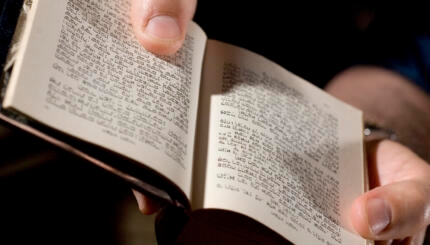This week’s Torah portion begins with Moses’s request to enter the Promised Land.
Deuteronomy 3
23. And I pleaded with the Lord at that time, saying,
24. O Lord God, you have begun to show your servant your greatness, and your mighty hand; for what God is there in heaven or in earth, that can do according to your works, and according to your might?
25. I beg you, let me go over, and see the good land that is beyond the Jordan, that goodly mountain region, and Lebanon.
26. But the Lord was angry with me for your sakes, and would not hear me; and the Lord said to me, Let it suffice you; speak no more to me of this matter.
The response by God to Moses is to essentially tell him to stop bothering Him about this. Enough already! Stop bugging Me about this.
Whatever the reason for this lack of response by God or better yet, this dismissive response, I leave to you. What is striking for me is how Rabbi Simlai from the Talmud (Brachot 32a) uses this passage:
R. Simlai expounded: A person should always first recount the praise of the Holy One, blessed be He, and then pray. Whence do we know this? From Moses; for it is written, And I besought the Lord at that time, and it goes on, O Lord God, You have begun to show Your servant Your greatness and Your strong hand; for what god is there in heaven and earth who can do according to Your works and according to Your mighty acts, and afterwards is written, Let me go over, I pray Thee, and see the good land etc.
For Rabbi Simlai, you want to learn how to pray correctly, follow the example of Moses. Begin with praise and only then you can ask God for something. This structure is an integral part of out liturgy. Praising God is required before you can plead your case. Rabbi Simlai does not explain why this should be the case. One can speculate that one has to first recognize Someone greater than yourself before one can focus on one’s own request. The almost absolute Otherness of God may remind you that what you are seeking better be really significant.
Whatever the case may be, Rabbi Simlai chooses the example where the prayer of Moses failed! He had succeeded other times, the Golden Calf, the spies when God almost destroyed the Jewish People. Yet the example to learn how to pray is when prayer is not successful, when the request is not only denied, but dismissed out of hand.
For Rabbi Simlai and adopted by our tradition, there is a necessary structure to prayer. This is the way it must be done. First praise, then request. I assume Rabbi Simlai followed this practice thrice daily, as do I and many. Our prayers are usually genuine and sincere, even if sometimes done without much conscious thought.
But do our prayers work? What do you think Rabbi Simlai might be teaching us about prayer? About Moses whose prayer is rejected? What do we think we are doing when we call out to God?
Torah
Pronunced: TORE-uh, Origin: Hebrew, the Five Books of Moses.



